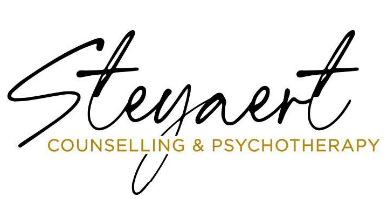
Emotion-Focused Therapy (EFT) in Burlington & London, Ontario
In-Person, Virtual and Phone Call Appointments Available
No Waitlist | Free Parking
EFT focuses on adult attachment and bonding, which means it goes straight to the heart of your connection—your emotions. Whether you’re a couple seeking to mend communication breakdowns or an individual hoping to better understand yourself, EFT provides a proven path to healthier, more secure relationships.
We’re here to help. If you’re ready to strengthen your relationship or overcome emotional challenges, book a session at our London or Burlington location, or schedule an online appointment from anywhere in Ontario.
What is Emotionally Focused Therapy (EFT)?
Emotionally Focused Therapy (EFT) is a therapeutic approach developed by Dr. Sue Johnson in the 1980s in Canada and is grounded in adult attachment theory. Research spanning over 30 years consistently supports EFT as one of the most effective approaches for couples therapy, with success rates showing that around 70–75% of couples move from distress to recovery, and up to 90% experience significant improvements in their relationships.
At its core, EFT helps you recognize and respond to the emotions—yours and your loved one’s—in a healthier, more supportive way. By uncovering the underlying feelings and fears that drive negative cycles, EFT offers you a roadmap to rebuild trust, intimacy, and empathy. While initially designed for couples, EFT has also been adapted for individuals and families, making it a versatile approach for anyone looking to form stronger, more secure bonds.
How Does EFT Work? (Stages & Techniques)
EFT typically unfolds in three structured stages to guide partners or individuals toward a healthier emotional connection. Here’s a snapshot:
- De-Escalation of Conflict
Together, you identify and step back from the unhelpful cycles that create repeated conflict or distance. You learn to see these cycles as the real “enemy,” rather than each other. - Restructuring Interaction
With the therapist’s guidance, you begin sharing and responding to more vulnerable emotions—like fear, hurt, or longing—in a safe, supportive space. This open communication helps each partner feel truly seen and understood. - Consolidation
You practice and strengthen these new, positive interaction patterns in daily life, solidifying a renewed sense of security and connection.
Session Experience:
In a typical EFT session, we’ll help you uncover the deeper feelings behind your conflicts or distress. Through honest, guided conversations, you’ll practice transforming negative cycles into positive, empathic interactions. Techniques like emotion-reflecting, gentle validation, and encouraging empathetic responses ensure the process feels supportive, not just theoretical.
Who Can Benefit from EFT?
Couples
EFT is especially beneficial for couples experiencing frequent arguments, communication breakdowns, intimacy issues, or even those on the brink of separation. By focusing on each partner’s emotional needs, EFT helps rebuild trust, strengthen bonds, and nurture long-term connections.
Individuals
EFT principles also help individuals dealing with concerns like depression, anxiety, or trauma. If your emotional well-being is tied to attachment wounds or past relationship challenges, EFT can provide a path to deeper self-understanding and healthier relating.
Families
EFT can be adapted for family therapy, guiding parents and children to recognize emotional triggers and communicate more effectively—an approach that fosters empathy and security in family relationships.
We welcome all couples and family structures. EFT has proven effective across diverse cultures, orientations, and life stages.
Benefits & Effectiveness of EFT
EFT has earned its reputation for effectiveness through extensive clinical research and real-world success stories. Some key benefits include:
- Deeper Emotional Bond
By safely exploring each other’s core emotions, partners build trust and intimacy that feels genuine and lasting. - Improved Communication
EFT sheds light on unspoken fears and longings, empowering you to share your needs without blame or defensiveness. - Conflict Resolution
Rather than avoiding or escalating disagreements, you learn to de-escalate negative cycles and solve issues collaboratively. - Long-Lasting Change
EFT works at the emotional root, so the improvements tend to endure long after therapy ends, leading to greater relationship satisfaction.
Commitment & Vulnerability: EFT isn’t a “quick fix.” It calls for openness, emotional honesty, and consistent practice between sessions. But this short-term investment (often 8–20 sessions) yields lasting relationship transformation.
How Long Does EFT Therapy Take?
EFT is typically considered a short-term therapy, often requiring around 8–20 sessions. The exact number depends on factors like the complexity of issues, each partner’s readiness, and how consistently new patterns are practiced at home. Some couples notice real progress within the first few sessions, but true, deep change usually unfolds gradually as trust and openness grow.
EFT vs. Other Therapy Approaches
Not to Be Confused with “EFT Tapping”
Emotionally Focused Therapy (EFT) is different from the Emotional Freedom Techniques tapping method. Although both share the “EFT” acronym, they are distinct approaches with different goals.
How Does EFT Differ from CBT or the Gottman Method?
- EFT dives into core emotional bonds and attachment patterns, aiming for a secure emotional connection.
- Cognitive Behavioural Therapy (CBT) focuses more on identifying and changing unhelpful thoughts and behaviours.
- Gottman Method highlights skill-building in communication and conflict management, but may not delve as deeply into emotional attachment needs.
No single method is “best” for everyone. EFT, however, stands out for its focus on attachment-based emotional change, making it especially powerful for couples longing to restore closeness and trust at an emotional level.
Frequently Asked Questions about EFT
Is EFT only for couples, or can individuals benefit too?
While EFT was pioneered with couples in mind, it has been adapted for individuals. If your emotional difficulties stem from unresolved attachment issues or relationship trauma, you can benefit from EFT principles even on your own.
We’re on the brink of separation—can EFT still help?
Yes. Many couples arrive at EFT when the relationship feels like it’s at a breaking point. By focusing on core emotional needs and fostering genuine empathy, EFT can offer a chance to reconnect, provided both partners are willing to participate.
Does EFT work in online sessions?
Absolutely. We offer secure virtual therapy for clients across Ontario, and EFT can be very effective through video sessions. It’s about sharing vulnerable emotions in real time, which online platforms can still facilitate.
How do I know if EFT is right for us?
If you and your partner find yourselves stuck in negative cycles, feeling distant or misunderstood, or longing to rekindle emotional closeness, EFT is an excellent option. If you’re curious, book an initial appointment to explore how EFT could meet your needs.
How much does EFT therapy cost?
The prices range depending on a few factors – is the client an individual, couple, or family? Is the client insured, or do they need a sliding scale option? We recommend visiting our therapy costs page.
Ready to Reconnect? Start Your EFT Journey
EFT can be a transformative experience for couples and individuals seeking a deeper, more authentic connection. At Steyaert Counselling, we provide a compassionate, evidence-based environment that empowers you to break unhelpful cycles and embrace genuine empathy and closeness.
London, Ontario:
We serve clients from across the city, including East London and surrounding areas. Book an in-person session with Hannah or opt for virtual appointments from the comfort of your home.
Burlington, Ontario:
Our Burlington office welcomes couples and individuals across the Halton region. Hailey offers easy online scheduling and flexible hours. If you’re outside Burlington, consider our virtual sessions for the same level of care.
Take the Next Step
If you’re ready to strengthen your bonds, improve communication, and rediscover hope in your relationship, book a session or contact us for more information. Let’s work together to create the secure emotional connection you deserve.
